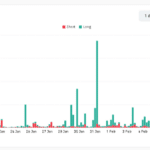1 hour ago
The Press Association
Gordon Brown has called for international action to end the banking crisis as work continued through the weekend on a second bail-out for Britain's high street banks.
Speaking to reporters in Downing Street, the Prime Minister said that the biggest problem facing UK banks was their exposure to international losses as a result of the collapse of the sub-prime mortgage market in the United States.
"As far as British banks are concerned the greatest problem that we have is international. It is the exposure of British banks to international losses that is the biggest problem that we face," Mr Brown said. "So what we need is an international solution."
The Prime Minister - who will host the G20 summit of leading economies in London in April - said he had been talking to leaders around the world and that he expected the discussions to continue "over the next few days".
"They will lead up to decisions that I believe that the international community has got to modernise and change and reform and get to the roots of the problem that make us angry about the way that the system is operating," he said.
Earlier, he stressed it was essential that the banks came clean about the true scale of the so-called "toxic assets" still on their books.
Calculated Risk blog (U.K.Telgraph):
Sources said that a bad bank would have to take on about £200 billion of toxic assets. That would take the Government's total commitment to solving the banking crisis to almost £1 trillion in taxpayers' money that has either been spent or pledged. That equates to about £33,000 per taxpayer. The total sum is equivalent to more than two-thirds of Britain's annual GDP of £1.4 trillion.
That is equivalent to a total U.S. bailout of almost $10 trillion (about 2/3 of GDP).
Saturday, 17 January 2009
independent.co.uk
by Jeremy Warner
With results for the final quarter of last year to be announced across the banking sector, investors, depositors and regulators are again in a heightened state of nervousness. Front runners in the reporting season show no let-up in the red ink. As for UK domestic banks, Royal Bank of Scotland issued a circular yesterday predicting that rising impairment charges and declining, pre-bad debt profitability would ensure that they all remain loss-making for the year to March 2010.
More scary still, RBS remarks that, on a fully mark-to-market basis, all the UK domestic banks are already technically insolvent. In a bank, insolvency occurs when the liabilities – depositors and wholesale funding – exceed the value of the assets, which are the bank's loan portfolio. Such an event occurs when you get a severe bad-debt experience, impairing the value of the assets, and there is an insufficient capital buffer to make up the difference.
As RBS points out, it is actually not unusual for banks to be insolvent at this stage of the economic cycle. What makes it different this time is that this dire state of affairs is much more transparent than it has ever been in the past. The banking system's greater reliance on wholesale funding also makes it considerably more vulnerable to withdrawal of funds on the liabilities side of the balance sheet.
Saturday, January 17, 2009
Subscribe to:
Post Comments (Atom)




No comments:
Post a Comment